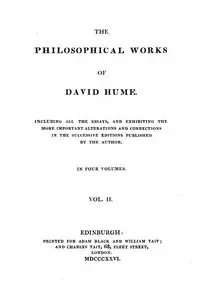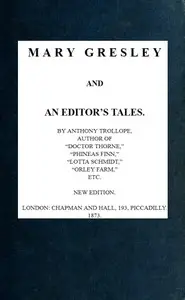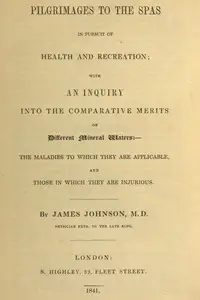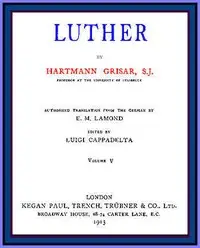"Philosophical Works, v. 1 (of 4)" by David Hume is a collection of philosophical essays and writings, compiled in the early 19th century. The volume aims to present the essential ideas and changes in Hume's philosophical thought, particularly from the edition published just before his death. It delves into topics such as human understanding, moral principles, and the nature of belief, showcasing Hume's contributions to empirical philosophy and his reflections on human nature and the intellect. At the start of this work, Hume offers a brief autobiography that paints a picture of his early years, literary pursuits, and the challenges he faced in establishing his philosophical career. He recalls his upbringing in Edinburgh and his gravitation toward literature and philosophy, recounting some disappointments with his publications that later turned to success. This personal narrative sets the tone for the philosophical essays to follow, providing insight into Hume's character and his relentless pursuit of knowledge, depicting him as a thinker deeply engaged in the exploration of human nature and understanding. (This is an automatically generated summary.)
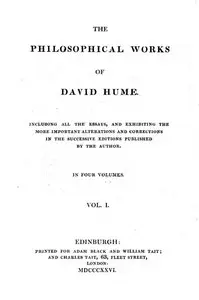
Philosophical Works, v. 1 (of 4) Including All the Essays, and Exhibiting the More Important Alterations and Corrections in the Successive Editions Published by the Author
By David Hume
"Philosophical Works, v. 1 (of 4)" by David Hume is a collection of philosophical essays and writings, compiled in the early 19th century. The volume ...
David Hume was a Scottish philosopher, historian, economist, and essayist who was best known for his highly influential system of empiricism, philosophical scepticism and metaphysical naturalism. Beginning with A Treatise of Human Nature (1739–40), Hume strove to create a naturalistic science of man that examined the psychological basis of human nature. Hume followed John Locke in rejecting the existence of innate ideas, concluding that all human knowledge derives solely from experience. This places him with Francis Bacon, Thomas Hobbes, John Locke, and George Berkeley as an empiricist.


